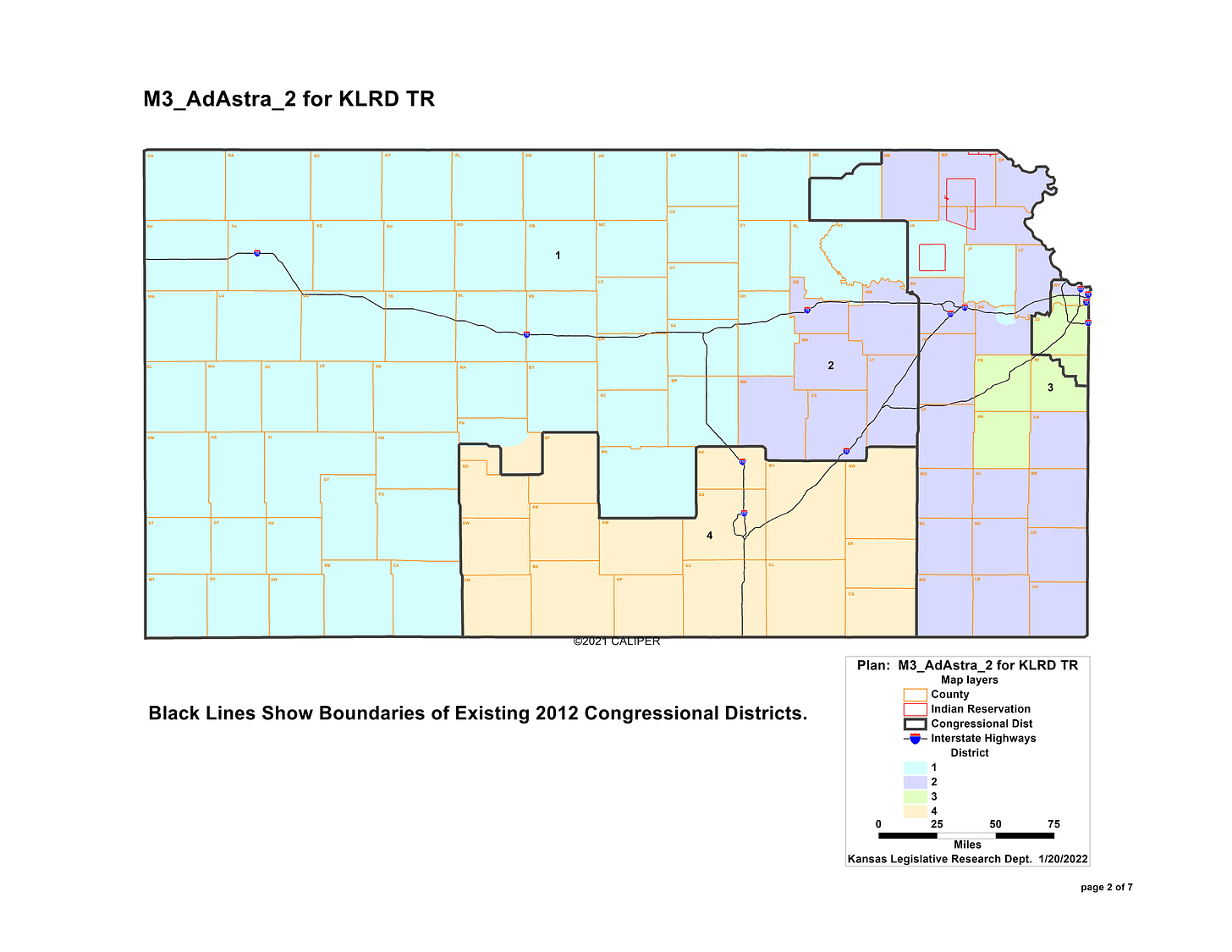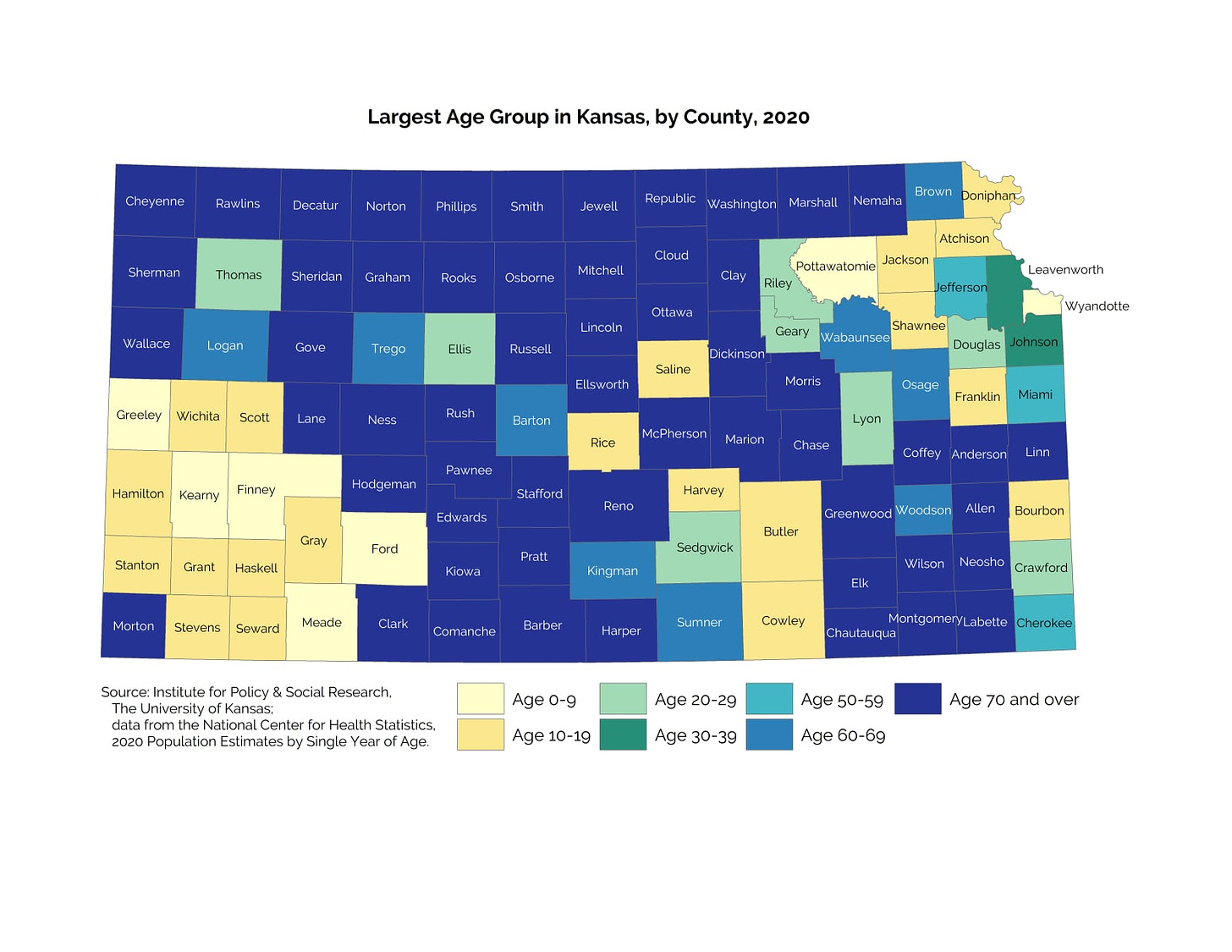I’ve had the opportunity to think about perspective a lot this past week - and how those perspectives can, and often do, control our thoughts and actions.
Today, I’ll gather with friends and family to watch the Superbowl. For us, it’s a sort of sad affair - because the Chiefs were so close, yet so far away, from playing today. Yet, if I were a Bengals fan, I’d be elated - and feel much like all us Chiefs fans did in 2020, when we appeared in, and won, our first Superbowl in a generation.
In a place like the Kansas Legislature - or any governing body for that matter - too much of one perspective can lead to a sort of groupthink that glosses over potential problems, or doesn’t think of them at all. When too many people who make decisions share the same view on the world, they typically can’t see their own blind spots - and there’s no one on board who can’t point them out. Because they don’t carry that perspective.
Most of us have seen the common exercises on perspective before:
Perspective is always important - but it’s more important when making decisions that affect other people. When other perspectives aren’t taken into consideration, it’s almost as if the other perspective doesn’t exist. And functionally, when we talk about policy, it doesn’t - because if a different view isn’t considered it’s not likely to be part of the final policy decision. Unfortunately, that’s what I see far too often in the Kansas legislature.
Redistricting
If you’re a member of the ruling party in Kansas, the seeming perspective is that the redrawn congressional maps are fairly done, meet the legal requirements, and serve the interests of Kansas. After all, voters elected more Republicans to the state house, and due to that fact, Republicans have a duty to exercise their power in a way that further secures that power. And drawing favorable maps is one way to accomplish that goal.
So strong was that conviction in that perspective, the ruling party successfully voted to override the governor’s veto of the maps. This almost certainly sets up a court challenge - which is precisely what the majority wants. Should the courts draw maps that are fair, and follow our rules, they will wail and gnash their teeth about “activist” judges who overreach from the bench. And that will aid their other long term goal of installing their own brand of judges on the bench.
I don’t believe for a minute that anyone in the ruling party truly believes these maps are objectively fair, or that they couldn’t have been done in a better way that produced a better result. I do think that if one looks through the lens of politics, the Ad Astra 2 map is the best possible result. Or the best possible result that can be somewhat argued in court.
Through any other perspective, however, the map is seen as blatantly biased. It carves up minority populations in Wyandotte County, splits the KC Metro area, and ties tiny towns in Southeast Kansas with urban residents. It also notches the city of Lawrence into the sprawling, rural, and deeply red First Congressional district.
One perspective I think hasn’t been considered in all this is time - and through that lens I can’t help but think that the ruling party’s greed might have gotten the best of them.
This map, from the Kansas State Data Center, shows the largest age groups by county.
When I see this map, combined with additional research about overall population trends, I see that much of the rural 1st and 2nd districts will lose population, while the urban areas will gain. It’s not a certainty, but quite likely, that by the time these maps get redrawn in another 10 years the rural areas will be in a weakened position, while the cities of Lawrence and the KCK area have continued to grow and could control these districts.
The overwhelming dominance of the ruling party allowed it to believe the idea that these maps are just - because through its lens of party purity and aggregation of power - they are. They serve the underlying purpose of ensuring they have an advantage for another decade.
This is another reason why I’ve always supported the idea that legislators can’t be trusted with the redistricting process. (Turns out current Attorney General and Gubernatorial candidate Derek Schmidt agrees). People who have self-interest in the debate struggle to be objective - and we see this dynamic play out in different ways across the country. Republican states draw Republican maps, and Democrat states draw Democrat maps. If we can’t do the job we’re asked to do, we should have the leadership and insight to hand it off to someone who can.
APEX and that mystery company
There have been a lot of headlines about the roughly $1 billion tax incentive legislation dubbed APEX, which is designed to help Kansas land a multi-billion advanced manufacturing company.
I have a lot of thoughts about this, but I’ll probably save much of them for another post. But I do want to talk about perspective as it relates to things like APEX.
The Kansas Legislature tends to approach almost every issue through the lens of business. It’s so engrained in everything we do, I don’t think most people even recognize it. The entire system is oriented toward business. The bulk of legislation we see and debate comes from the business community - and is meant to address one concern or another that business X, Y, and Z discovered in the off-season. The lobbyists that roam the building and set up legislative lunches, dinners, and receptions, for the most part, represent business interests.
Even as it relates to people, the solutions are business-oriented. Need healthcare? Get you some employer-sponsored insurance. Utilities getting expensive? Well, let’s find a way to lower that expense on business? Need a better paying job? Let’s create a business tax credit to encourage employers to create jobs or bump up wages. It’s seldom that I see a problem viewed from a people-first perspective - but on the daily, I’ll hear and see a search for the solution to any problem through the lens of business.
The blind spot in this is that we never consider how policy that would stabilize, help, or center working families might actually be beneficial to business. There are opportunities for growth in people-oriented solutions - but we’ll never see them through our myopic, business-centered approach to the world. We also fail to see how our business-centered approach can, and does, abuse poor and working families.
And while the all-good-things-come-from-business mentality tends to be the prevailing perspective, it’s augmented and encouraged by the obnoxious power, money, and influence of groups like the Kansas Chamber of Commerce. These groups ask for something just about every single year - a level of indulgent neediness that repeatedly costs the people of Kansas.
Even in this giant APEX bill, there’s a nice reduction in the corporate tax rate - with an initial attempt to get the corporate rate down to zero that nearly scuttled the entire project. And now, the argument is being built that because this APEX bill is so pricey, we might not be able to afford the elimination of the state’s food sales tax. (We can though). It’s another example of how we consistently place the interests of business above the interests of people and their communities. And if you don’t get your sales tax cut, it will mean that money you could’ve saved has been routed to corporations. Again.
Let’s be clear about what happens every year in the state house: Money you pay in taxes - the money that you earn by giving up time with your family, the money you earn through wear and tear on your body - is consistently taken from you and given to the biggest companies in Kansas. And some of the financial windfall created by your tax money is then routed to pay for lobbyists who work every session to make sure those companies can find more ways to take more of your money.
And then, when election season rolls around, the almighty groups at the top of the legislative/lobbyist food chain take even more of that money that should’ve been yours and spend it to build a legislature of their choosing. Because from their perspective, there’s only one real way to see the world - and that’s the way they decide you should see it.
I voted against the APEX legislation, because of my view of the world. I’m not against business, nor am I against creating new jobs and investment in the state (though I’m sure the special interest postcards this election will say just that. If I had voted the other way, they’d say I gave your money to big business. You truly can’t win with these people for whom truth is so flexible). Those are all good things, and we should be poised to capture whatever opportunities the world presents to us. Even though I voted against it, I’m hopeful Kansas will win this project, and I’m hopeful it’s as transformative as people in the know say it will be.
But time and time again, I have heard in Topeka all the reasons we can’t afford one thing or another that would help people. We lament the potential cost to the budget, and lawmakers wring their hands or ask around to see what they are or aren’t allowed to do. But we’ve proven that we will move heaven and earth to find money for business, even one we know nothing about. Even one that hasn’t yet committed to us. And while we’re at it we’ll even sweeten the pot for existing business by reducing their taxes.
Yet when it comes to helping the average Kansan, it never seems to be in the cards - and that’s mostly because the lens that’s been purchased for us won’t allow us to see it. But we’ve proven we can do anything - can find any solution - if we’re simply willing to change perspectives.








good one
Amen!